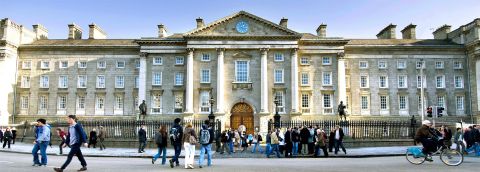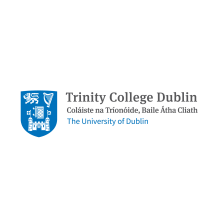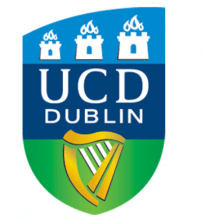Sir Peter Sutherland trained and practised as a lawyer before becoming the Republic of Ireland’s youngest attorney general in 1981 – a position he held on two occasions. He served as European commissioner responsible for competition policy and later became director general of the General Agreement on Tariffs and Trade, holding the role during its transition to the World Trade Organization. Since 2006, he has been special representative for international migration at the United Nations, advising the secretary-general on issues related to migration and development. In November, he was announced as professor in practice at the London School of Economics’ Institute of Global Affairs. He was previously chair of the LSE’s court and council.
Where and when were you born?
Dublin, 25 April 1946.
How has this shaped you?
I am a Dubliner and Irishman through and through.
How does it feel to be returning to the LSE, albeit in a different capacity?
In my years as chairman I have developed an abiding love for the school and its values.
What do you hope to achieve in your position?
I hope to influence students towards a commitment to global interdependence and all that means.
Do you fear that the recent atrocities in Paris might lead to further persecution of those escaping war-torn nations?
The plight of Syrians that results in so many refugees is caused by persecution and it is hard to see matters improving in the short term.
What do you think of the UK government’s response to the refugee crisis?
I think that the government should have played a larger and more generous role in both the resettlement of refugees from outside the European Union and relocation from within the EU than it has played.
What role can universities play in helping the refugee crisis?
Universities should remain as open as possible to foreign students. They should also foster values that reject extreme nationalism and support interdependence.
What is the UN’s stance on the crisis – does it feel global superpowers are doing enough to help alleviate any of the problems?
The UN is made up of its member states. The secretary general, whom I serve, is deeply concerned by the absence of a solution to regional conflicts that drive the refugee crisis (which is not confined to Syria). Greater efforts must be made both to resolve conflicts and other root causes of migration and to help displaced persons. The list of additional help that the global superpowers could give is too extensive to be detailed here.
Do you ever see a resolution to the current refugee situation?
Nothing is for ever and sooner or later conflicts end, but there is no end in sight for the Syria conflict or the wider conflict in the area.
What do you think of the government’s restrictions on international students staying in the UK after study?
I think that the government should not be as restrictive as it is. Britain has gained a great deal from its historic welcome for, and tolerance of, migrants and different cultures. It should continue to do so.
Have you had a eureka moment?
In a sense, when I learned in the 1980s of the nobility of the cause of European integration and, following that, the proactive value of global interdependence.
What advice would you give to your younger self?
Carpe diem.
What keeps you awake at night?
Thank God, nothing at the moment. But I am a worrier and if I do not have anything real to worry about, I try to find something.
What's your most memorable moment at university?
Running out on to Lansdowne Road as captain of University College Dublin for the Colours Match [an annual rugby union fixture between UCD and Trinity College Dublin].
What kind of undergraduate were you?
I was a terrible schoolboy but a good undergraduate.
What do you do for fun?
Spend as much time as possible with my wife.
What’s your biggest regret?
I don’t really have any.
Tell us about someone you admire.
I greatly admired the former prime minister Garret FitzGerald, who was in office when I was attorney general of the Republic of Ireland. I admired his humanity above all. He combined intellect with compassion and did a great deal to bring about relative peace in Northern Ireland.
What are the best and worst things about your job?
As special representative of the secretary-general for international migration, I have a roving brief that has little definition of its parameters. This is its most positive aspect. Its most negative is the amount of travel that I have to do.
If you were the universities minister for a day, what policy would you immediately introduce to the sector?
I have always believed that universities should be required to have introductory courses that permit re-evaluation of options in the early days following admission. They should broaden the mind. For example, when I did my Bachelor of Civil Law (BCL), in the first year, it was compulsory to take three general arts subjects (philosophy, history and economics) and an introduction to the legal system. This was invaluable.
Appointments
Tim Rainer has taken up his role as the first professor of emergency medicine at Cardiff University. Professor Rainer was previously director and professor at the Chinese University of Hong Kong’s Accident and Emergency Medicine Academic Unit and his appointment is regarded by Cardiff as a significant catalyst for delivering better emergency care right across Wales. The role is joint-funded by Cardiff University and Cardiff and Vale University Health Board. “Coming back home to Cardiff fills me with excitement,” Professor Rainer said. “I can sense the desire of people in the university, the health board and the emergency department to face the challenges of this age and to become world leaders and world providers in emergency medicine. Placing more focus on emergency medicine will save patients’ lives.”
Oxford Brookes University has announced the appointment of Linda King as its first pro vice-chancellor for research and global partnerships. Professor King, who took up her role at the beginning of November, was previously associate dean for research and knowledge exchange for Oxford Brookes’ Faculty of Health and Life Sciences before taking on the role of interim pro vice-chancellor, research and knowledge exchange earlier this year. She has been professor of virology at the university since 1998 and has also served as dean of the School of Life Sciences.
The Rev Peter Green, the dean of chapel and chaplain at Bishop Grosseteste University, has been installed as a priest vicar of Lincoln Cathedral. He has been at Bishop Grosseteste since 2012.
Jo Rycroft-Malone, currently head of the School of Healthcare Sciences at Bangor University, has been promoted to the position of pro vice-chancellor (research and impact) at the institution.
Peter Hanke has been made head of choral conducting at the Royal Welsh College of Music and Drama.
POSTSCRIPT:
Print headline: HE & me
Register to continue
Why register?
- Registration is free and only takes a moment
- Once registered, you can read 3 articles a month
- Sign up for our newsletter
Subscribe
Or subscribe for unlimited access to:
- Unlimited access to news, views, insights & reviews
- Digital editions
- Digital access to THE’s university and college rankings analysis
Already registered or a current subscriber?








